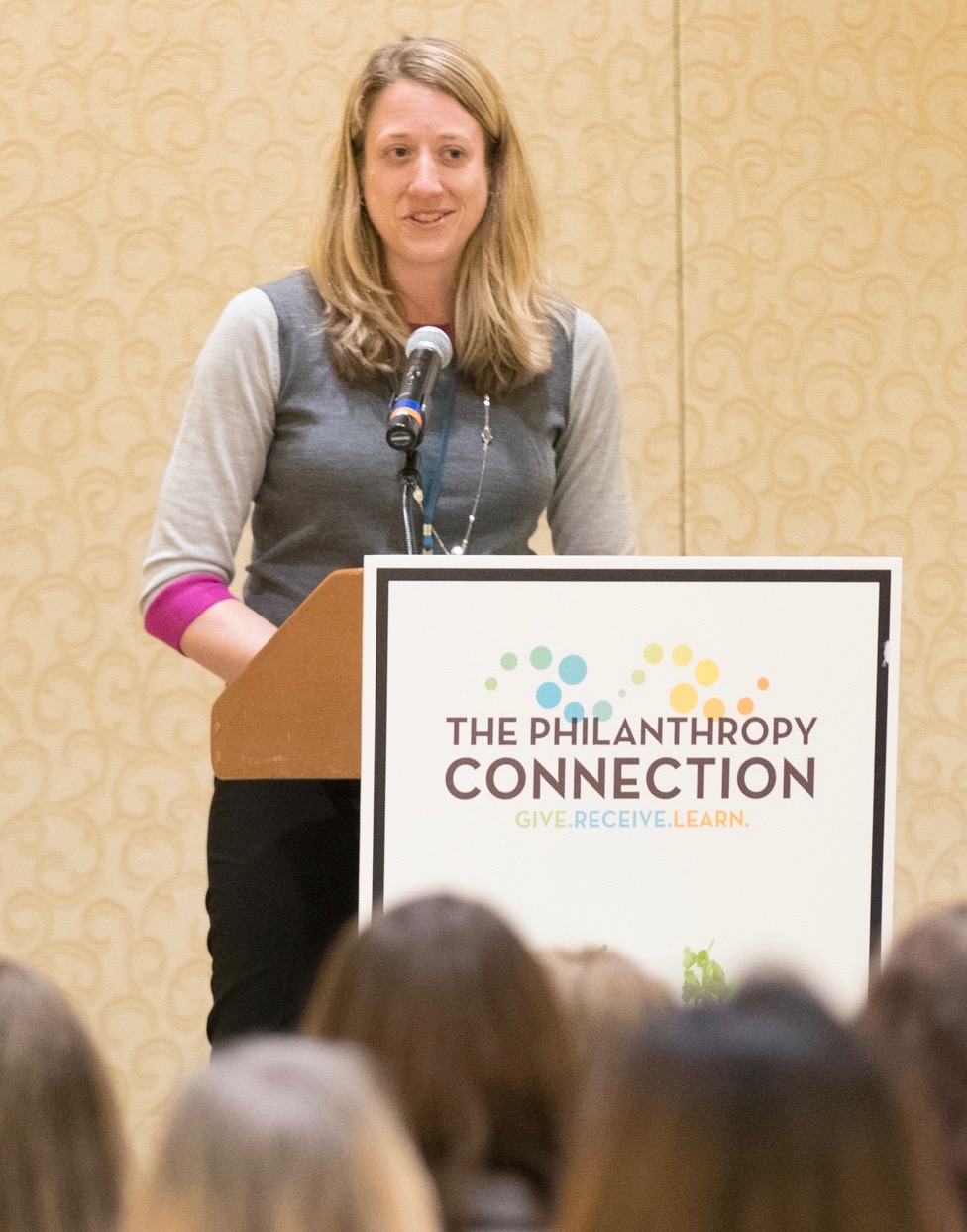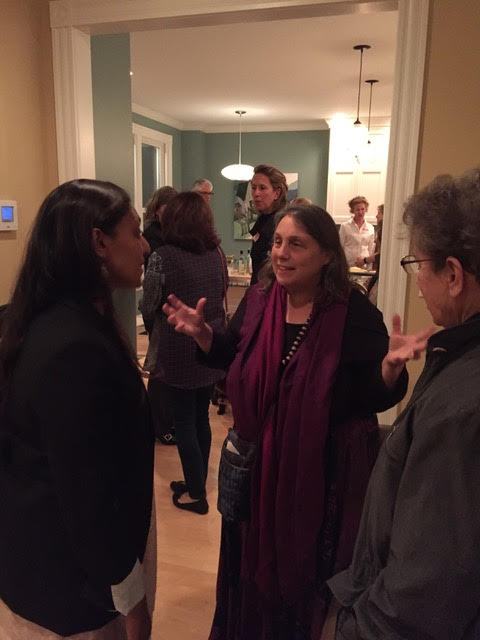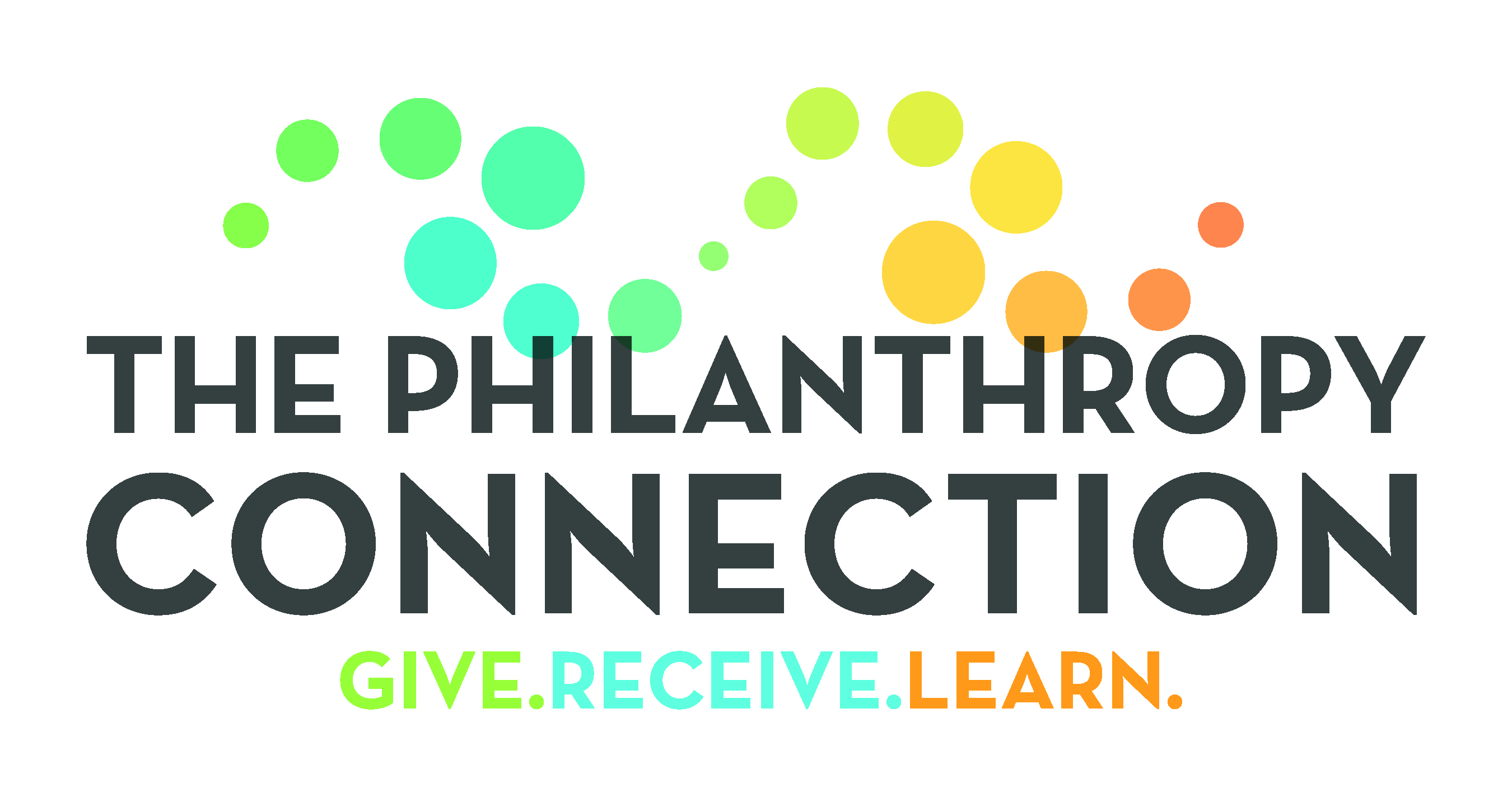The Interview with TPC Member Laura Dziorny
Laura, thank you for sharing with us about your experience with TPC’s Liaison Program. Before we begin, please tell us a little bit about yourself and how you came to be a member of TPC.
Thanks for the chance to share more about the Liaison role and my experience! I’m currently going into my fourth year as a TPC member. It’s wonderful to be part of a community of women dedicated to improving the lives of others and to see how my contribution can help make a significant impact for worthwhile local organizations. I became a TPC member both to be part of this community and to experience the grant-making process from a new perspective. I work as chief of staff at the Rennie Center for Education Research & Policy, a Boston-based non-profit, and among my main responsibilities are grant writing and development. TPC offered a great opportunity to be on the giving side rather than the receiving side of philanthropic support, allowing me to understand how philanthropists make tough decisions on which organizations to fund.

Year after year, I am so impressed by the incredible work of the TPC grantees – their vision, their drive, and their results. Serving as a Liaison allows me to learn more about one of these impressive grantees and interact directly with the people who fuel its success. I can put a friendly face on an organization that I may only know through grant documents. I can find out what motivates and inspires the staff who work there and hear the stories of those they serve. And I can hopefully offer an additional measure of support beyond the TPC grant funding, contributing in some small way to their ongoing success. My experience as a Liaison last year was both humbling and eye-opening, and I was eager to serve again this year in order to learn about – and learn from – a new grantee.
Last year, you were a Liaison along with Susie Friedman for Political Asylum/Immigration Representation (PAIR) Project. Please tell us about how you and Susie cultivated your relationship with PAIR and what you learned along the way.
From the beginning of the year, PAIR Executive Director Anita Sharma and Development Specialist Tamara Omazić were incredibly open and welcoming, so it was easy to cultivate a positive working relationship! It also helped that Susie had been a Liaison for PAIR when they were first named a TPC grantee two years earlier, so she already knew Anita and the organization and understood some of the historical context for their more recent successes and challenges. Susie and I met with Anita and Tamara near the start of the grant year for a “getting-to-know-you” conversation that touched on a wide range of topics – PAIR provides free legal services to asylum-seekers and promotes the rights of detained immigrants, and as you might imagine, they had a number of updates to share on how recent political developments related to immigration had affected their work. Additionally, because TPC’s funding was being used to support Tamara’s role as Development Specialist, both Anita and Tamara were open and transparent about their development strategy and some of the milestones ahead during the year, which was a great learning experience for me, especially given my own role in a non-profit.

As the year went on, we met several more times with the PAIR team, including at a Philanthropy Dialogue focused on supporting immigrants and refugees. We also interviewed both women for a TPC newsletter story on PAIR, allowing us to hear more about their personal pathways and their connections to the work. Across all our discussions, I learned a great deal about their model and the challenges of representing refugees and asylees, especially in these fraught times. Coming out of the year, I feel personally invested in their long-term success, and I have no doubt that I’ll continue to check up on their progress and support their work any way I can in the years to come.
We know that PAIR benefitted not only from TPC’s grant last year, but also from donations from members ranging from time spent mentoring staff to providing gift cards for clients. From your experience with the work you did with PAIR, can you give us additional insight into the impact of TPC’s funding? Did PAIR mention any ways in which TPC was an atypical funder?
Anita and Tamara from PAIR told us many times how grateful they were to be working with TPC, and how “cared-for” our members made them feel. A number of members brought gift cards or Charlie Cards to the Philanthropy Dialogue in October, which PAIR staff were able to distribute to their clients around the holidays. Also at the Dialogue, Anita connected with a TPC member who provided a series of self-care sessions to PAIR staff. This member came to the PAIR offices each month to listen to the stresses and struggles of the staff, share tips for communicating more effectively with clients, and offer suggestions on celebrating the small victories (including by ringing a bell to share good news). During PAIR’s first year as a grantee, Anita had also received mentorship and support through TPC as she transitioned into the Executive Director role, so her experience with the broad range of TPC’s support has deep roots. Finally, TPC ordered several surprise lunches for PAIR staff over the past year, which to Anita were about much more than food – they were an opportunity to gather, chat, and linger, as well as a symbol of our group’s commitment to the well-being of PAIR and its staff.
You’ll be a Liaison, along with Koren Phillips, for Adolescent Consultation Services this year and are also an ambassador for TPC and the Liaison Program, encouraging both new and existing members to participate. Tell us why you think this program and TPC are important.
The Liaison role is critical to TPC’s model. The multiple face-to-face interactions between Liaisons and non-profit leaders ensure that TPC’s relationship with grantees is focused on support and growth rather than on reporting and compliance. We also provide a personal touch to grantees, giving them a single entry point to tap into the resources of our network, and we help channel members’ giving in ways that will be most useful for staff. More broadly, TPC offers so many opportunities to make an impact on our community and serve those who are most vulnerable. This impact may start with financial resources, but it certainly doesn’t end there. Becoming involved with TPC – whether as a Liaison, as part of a grant review team, or in another capacity – is a fantastic way to learn about and practice everyday philanthropy. And it offers the unique benefit of getting to know both an inspiring group of non-profits and a remarkable group of dedicated women. I feel very fortunate to be part of TPC and to contribute to its work by serving as a Liaison again this year.

